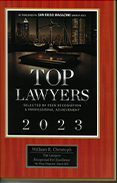The answer: It depends (of course).
iPhones (and other types of smartphones) often have ways to keep unwanted eyes from prying. These methods range from passcodes to fingerprints. Apps themselves may have encryption, like some text messaging services, which purport to be free of prying eyes. Not all users keep their phones locked, or use these apps, but many do. And some of those who do might find themselves one day facing a police officer who wants access to their locked phone.
This issue received broad national attention in the infamous tussle between Apple and the FBI. It began in 2015, following the San Bernardino terrorist attack, in which 14 people lost their lives and 22 more were wounded. After the attack, the FBI sought to compel Apple to unlock the phones of its customers (the San Bernardino shooters in this case), to aid in the FBI’s investigation.
The government’s constitutional authority to search locked iPhones has since become a wider issue in several jurisdictions.
In re Search of a Residence in Aptos, California
The Volokh Conspiracy blog offers two recent cases on decrypting locked devices.
One is a California case involving the Fifth Amendment, which in part prohibits the government from compelling people from being witnesses against themselves in criminal cases.
The law is far from settled, but in this case at least (In re Search of a Residence in Aptos, California, 2018 WL 1400401 (N.D.Cal. March 20, 2018)), the judge held that the police couldn’t compel the suspect to punch in a passcode to unlock an iPhone.
But the case – as these cases often do – could easily have come out the other way. Expect much more to come when it comes to iPhones (as well as other encrypted devices) and the government’s constitutional authority to both unlock and search them.










